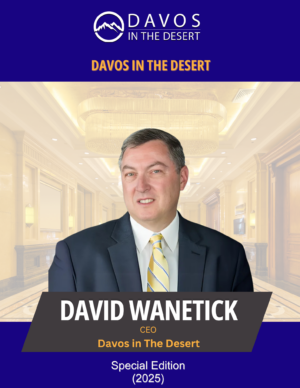Emerging Disruptors in Cardio Care
Delivered – Virtually
December 10, 2025
Welcome to the Emerging Disruptors in Cardio Care Conference. Join investors, deal-makers, and representatives from the cardio care industry. Listen to CEOs of some of the most dynamic cardio care companies discuss the latest innovations in cardiovascular care. Don’t miss this opportunity to learn about groundbreaking treatments and technologies shaping the future of heart health. Attend virtually on December 10, 2025.

What is the size of the cardiology industry?
The U.S. cardiology market was forecasted to reach $59.6 billion by the end of 2024. The global cardiovascular devices market size was $61.4 billion in 2023 and is projected to grow to $117.7 billion by 2032. The global cardiovascular drugs market was valued at $144.11 billion in 2023 and is expected to reach $207.8 billion by 2033.
 The American Heart Association estimated annual direct costs of $39.2 billion to $60 billion for heart failure care. Heart failure hospitalizations contributed the most to annual US healthcare costs at $19.5 billion. The total estimated cost of cardiovascular diseases was over $320 billion annually in healthcare costs and lost productivity.
The American Heart Association estimated annual direct costs of $39.2 billion to $60 billion for heart failure care. Heart failure hospitalizations contributed the most to annual US healthcare costs at $19.5 billion. The total estimated cost of cardiovascular diseases was over $320 billion annually in healthcare costs and lost productivity.
 Why are expenditures on heart disease rising?
Why are expenditures on heart disease rising?
In 2023, roughly 20.5 million adults in the U.S. suffered from coronary artery disease, making it the most prevalent form of heart disease. Based on data from 2005 through 2014, the estimated annual incidence of heart attack in the United States was 605,000 new attacks and 200,000 recurrent attacks. In 2022, 702,880 people died from heart disease in the United States. By 2030, at least 6 in 10 adults, more than 184 million people, are expected to have some type of cardiovascular disease.
- Demographics: As people age, they become more susceptible to heart conditions. By 2030, roughly 82 million Americans will be aged 65 or older. Elderly patients (≥70 years) require substantially more clinical resources after cardiac surgery compared to younger patients.
- Lifestyle and Environmental Factors: Poor diet, alcohol consumption, tobacco use, physical inactivity, and obesity are key factors contributing to the increasing incidence of heart disease.
- Technological Advancements: Innovations in cardiology devices and techniques have improved outcomes. New products like drug-eluting stents, bioresorbable stents, and transcatheter aortic valve replacement (TAVR) are revolutionizing the field. Also, there is an increasing preference for minimally invasive interventional cardiology procedures over traditional open-heart surgeries.
- Rising Governmental Expenditures: Rising per capita disposable income and enhanced government support for Medicare and Medicaid are improving reimbursements.
What are some new technologies designed to treat cardiovascular problems?
The following are among the innovative methods and advancements in cardiovascular treatment that are showing promise:
 Stem Cell and Nanowire Therapy: Researchers are combining stem cells and silicon nanowires to develop a new treatment for heart damage. This approach shows promise for repairing damaged heart tissue and is moving to the next stage of research, including genetic modifications to prevent rejection.
Stem Cell and Nanowire Therapy: Researchers are combining stem cells and silicon nanowires to develop a new treatment for heart damage. This approach shows promise for repairing damaged heart tissue and is moving to the next stage of research, including genetic modifications to prevent rejection.
Artificial Intelligence and Computational Tools: The Center for Digital Cardiovascular Innovations is using AI, computational simulations, and extended reality (AISER) to create “digital twins” of patients’ heart arteries. This technology allows for better visualization of diseased areas and modeling of treatment outcomes, potentially improving the precision of interventional procedures.
Transcatheter Aortic Valve Replacement (TAVR): TAVR continues to evolve, with new evidence supporting its durability and new applications being explored, such as treating aortic regurgitation.
Advanced Imaging Techniques: Studies have shown that optical coherence tomography (OCT) and intravascular ultrasound can improve outcomes in complex coronary interventions compared to traditional angiography-guided procedures.
GLP-1 Receptor Agonists: Medications like semaglutide, originally developed for diabetes and weight loss, show promise in improving quality of life for heart failure patients.
Drug Combination for Cardiac Regeneration: A combination of FDA-approved drugs, paromomycin (Paro) and neomycin (Neo), has shown potential in restoring cardiac function by reviving the body’s ability to regenerate heart muscle.
Resorbable Valvular Prostheses: Researchers are developing prosthetic heart valves that the body will eventually replace with working organic valves, which could be particularly valuable for younger patients.
Where is money moving in the cardio care industry?
A lot of money is moving around in the cardiology industry. Below are some of the recent acquisitions and IPOs of cardiology companies:
- HeartBeam raised $10 million through an underwritten public offering of 5,882,353 shares at $1.70 per share, closing on February 14, 2025.
- HeartFlow secured $215 million in Series F funding to meet demand for advanced cardiac diagnostics.
- Bitterroot Bio raised $145 million in Series A funding for cardiovascular research.
- DalCor Pharmaceuticals obtained $80 million in Series D funding for cardiovascular research.
- CVAUSA acquired Novolink Health in August 2024, integrating its telehospital approach to deliver high-risk cardiovascular care at home.
- Johnson & Johnson’s acquired Shockwave Medical (specializing in intravascular lithotripsy technology for treating calcified cardiovascular disease) for $13.1 billion in May of 2024.
- Boston Scientific acquired Silk Road Medical, develops devices to treat carotid artery disease, for $1.26 billion in June of 2024.
- Johnson & Johnson’s intended acquisition of V-Wave, which develops a minimally invasive interatrial shunt for treating heart failure, for at least $600 million in August of 2024.
- Cardurion Pharmaceuticals raised $260 million in July of 2024 while Kestra Medical Technologies raised $196 million in 2024.
- Between 2019 and 2023, private equity firms acquired 50 cardiology practices with 320 locations.

Each management team will discuss their company’s existing and forthcoming product offerings. They will apprise listeners of their addressable markets and expectations for payor profiles. They will inform us of their research and development efforts, proprietary technologies and patent portfolios. They will tell us about their business models including the extent of their collaborations, licensing strategies, distribution channels, manufacturing strategies, milestones and exit strategies.
Please check back for the agenda of the presenting companies. If you would like to nominate a company to present, please contact Tabitha Owuor at tabitha@davosinthedesert.co
Register now to listen to presentations from industry leaders and innovators. Registration is free for members of Davos in the Desert. Non-members can register now for just $10. No refunds.
Secure your spot today and be part of shaping the future of cardio care industry!
Registration is for one individual. No refunds.


